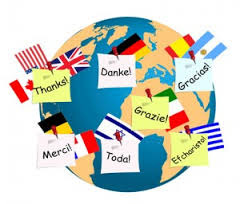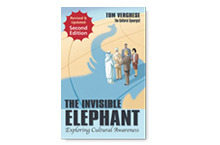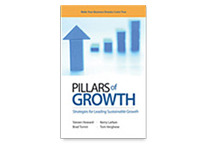|
|
|
|
ISSUE 48
|
July
2015
|
| |

"How much language is enough to get by when I am working overseas?"
"How can I quickly gain some basic language skills?"
These are questions that I am frequently asked. These came to mind as I negotiated unexpected weather interruptions to my travel plans this past month. Typhoons, volcanoes and peak travel season make for interesting travel times! I found myself negotiating some difficult language barriers as I was endeavoring to re-route and re-ticket airline travel around Asia.
Trying to get by as a traveler when you don't speak the local language is one thing, but trying to work in countries when you don’t speak the language requires a lot of stamina, patience and understanding – sometimes easier said than done.
Some language tips that I find useful are:
- When you sense that you are getting emotional, stop and assess your thought processes, reactions and behaviours because the effects are feelings of disconnection, isolation, frustration and possibly later regret.
- Try to learn some basic phrases before you arrive and focus more on the vocabulary than the grammar.
- Don't worry about perfection, be prepared to make mistakes and experience moments of vulnerability and give it a go.
- Learn some slang – this can improve connections with local people and demonstrate to them the effort that you have made.
- Use technology: If you have a smartphone, download a language app that can articulate local phrases for you. Save the key phrases on your phone. The more you refer to them the more you will memorise them.
- Articulate each word carefully so that your accent doesn't confuse the listener.
- Carry a notebook. Write down the pronunciation and ask for clarification or even draw pictures, be creative.
- Make a point of when you find yourself during the day having moments of "how do I say this in the local language" write it down (albeit phonetically) because you will find that these are the most useful words for you to get by with. Ask locals or refer to your technology.
- Local markets are a great place to learn useful phrases and vocabulary. Ask questions, listen and observe body language and language intonation.
- Have fun with it and say it with a smile.
One of the consequences of language barriers can be the feeling of vulnerability and the uncomfortable reliance on others for assistance; but the upside of this can be that these power differentials can actually lead you to form relationships of greater equality and 'connection'.
Best Wishes
Tom Verghese
 
Send to Friend |
|
| |
Surviving Language Barriers
|
|
|
 |
|
| |
|
|
|
|
I read this book a while ago and particularly enjoyed Duhigg's stories, case histories and his lively writing style. Duhigg is an investigative reporter for the New York Times, taking most of his research from the fields of social psychology, clinical psychology and neuroscience.
The premise is rather simple: we create and maintain habits to conserve mental energy, which in turn allows us to focus on more complex and difficult issues. Creating habits is straightforward, but choosing the right habit is difficult. Put the right one in place, and it’s transformative but choose poorly and it won't make much of a difference.
He explains some fascinating scientific discoveries that demonstrate why habits exist and how they can be changed. Some of the narratives include the boardrooms of Procter & Gamble, Alcoa, the NFL, Olympic swimmer Michael Phelps, Starbucks CEO Howard Schultz and the civil rights movement.
His discussions around how we operate on automatic pilot, perform complex behaviours without any conscious thought at all and the impact of societal norms resonated with me, particularly in terms of our unconscious biases.
|
|
| |
RECOMMENDED BOOK:
"The Power of Habit: Why We Do What We Do in Life and Business" By Charles Duhigg 2014
|
| |
 |
| |
|
| |
|
| |
|
|
|
|
| |
|
|
|
RESOURCES
'Raising Your Cultural IQ - DVD and CD
'Raising Your Cultural IQ' explores the issues around culture, the challenges that culture can pose and provides some great strategies on how to leverage on cultural differences and similarities.
'The Invisible Elephant - Exploring Cultural Awareness'
2nd Edition by Tom Verghese
Many aspects of culture are invisible, yet culture has an enormous impact on our lives. Like an Invisible Elephant, if ignored these aspects can lead to misunderstanding, stress and conflict. Alternatively, if attention is given to the Invisible Elephant, it can enhance productivity, improve teamwork and create more joy in our lives.
Book testimonial by Asma Ghabshi
Learning And Development Manager, Shell Oman:
"The Invisible Elephant made my perspective of my national culture in comparison to my personal culture more visible. It has given me a deep insight into dealing with people of different cultural backgrounds."
'Pillars of Growth - Strategies for Leading Sustainable Growth' - Book by Tom Verghese, Kerry Larkan, Steven Howard and Brad Tonini
Written with the business leaders and entrepreneurs of Asia in mind, 'Pillars of Growth' provides a road map to assist you in thinking through four critical concerns that impact the sustainable growth of every business.
Visit our store here
|
 |
| |
 |
| |
 |
| |
 |
| |
ABOUT CULTURAL SYNERGIES
Cultural Synergies' mission is to improve individual and organisational performance when interacting with people across distance, culture and time.
Take advantage of our years of international experience. All our services are tailored to individual client situations.
Visit our website www.culturalsynergies.com
for more information.
Phone: +61 3 9909 7456
Mobile: +61 (0) 419 999 292
Fax: +61 3 9909 7457
Email: enquiries@culturalsynergies.com
|
|
PRIVACY POLICY
You are receiving this email from Cultural Synergies because we have met and we hope that you find this newsletter useful. To ensure that you continue to receive emails from us, please add my email address to your address book today.
Cultural Synergies respects your right to privacy. We never share, rent, or sell your name or email to anyone else. Your privacy is safe with us.
|
|
|
|







